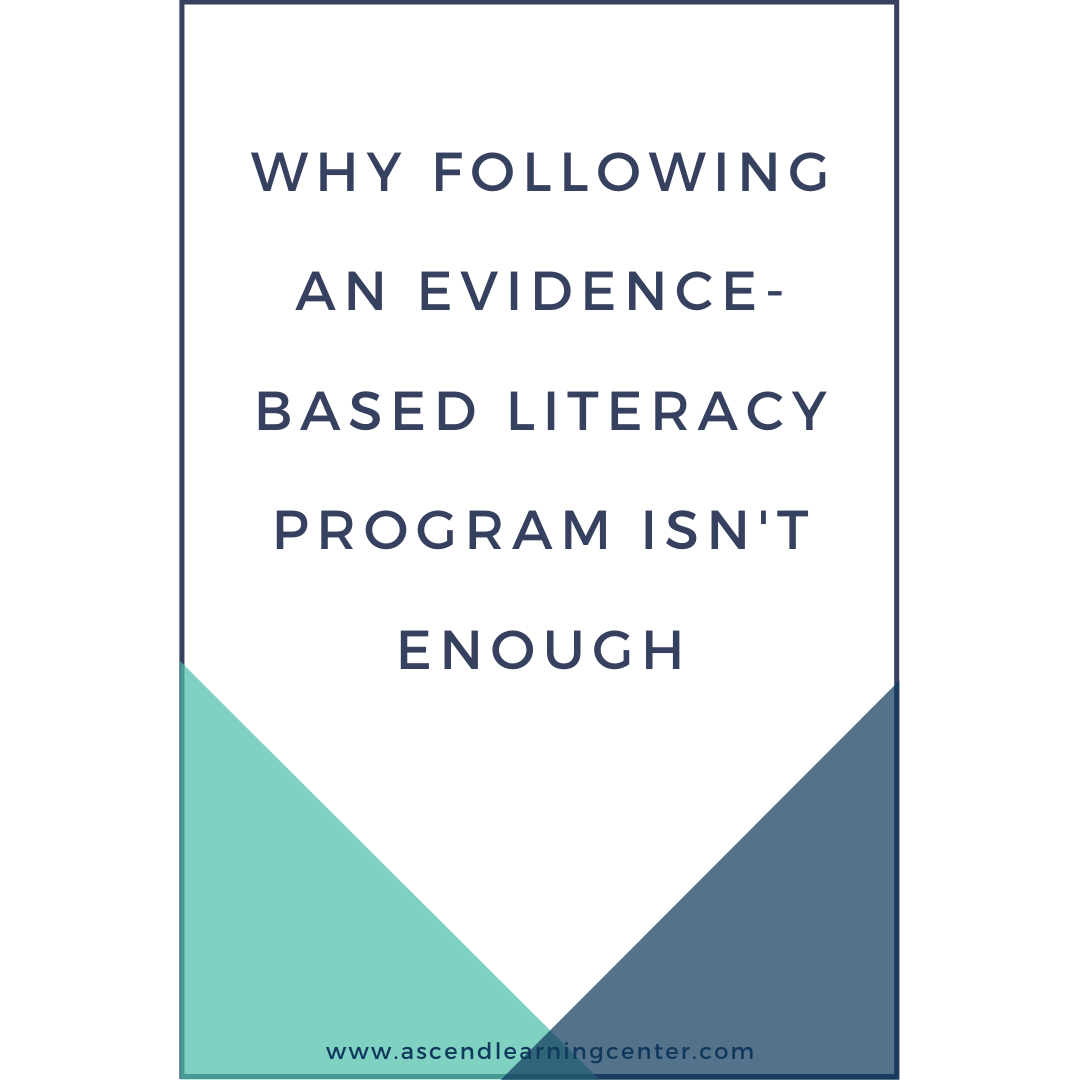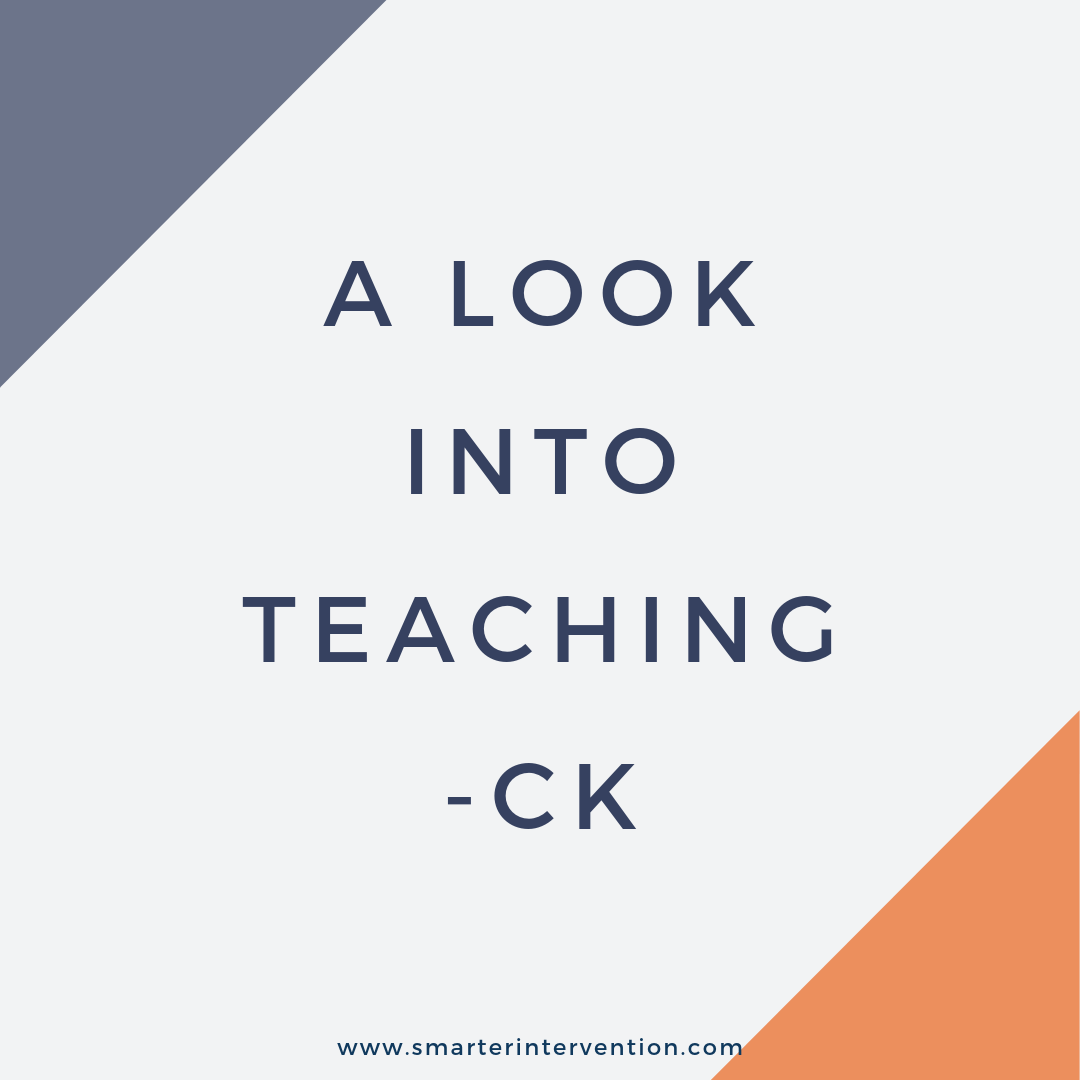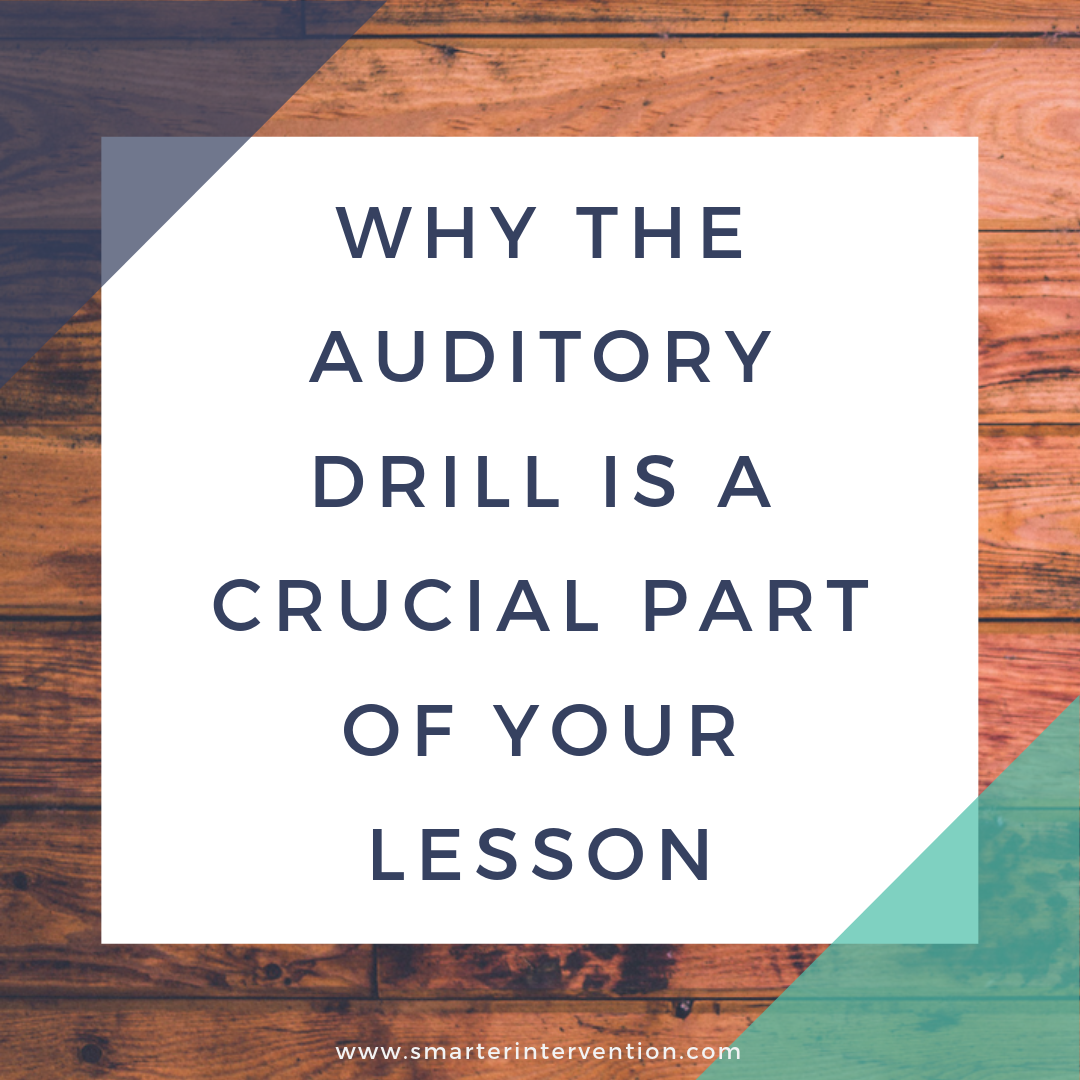Science-based literacy resources and articles
for families, educators and schools
Search by Category:
Categories
- Advocacy
- Authentic Literature
- Business
- Comprehension
- Data Tracking
- Differentiation
- Dyslexia
- Evaluation and Assessment
- Executive Functioning
- Games & Activities
- Helping My Child At Home
- How To
- IEP/504 Plan
- Lesson Planning
- Math
- Online Intervention
- Organization
- Parents
- Phonics
- Phonological Awareness
- Reading Comprehension
- Reading Fluency
- Research
- SLP
- Spelling
- Vocabulary
- Writing
How to Systematically Review Previously Learned Material
As students progress through reading instruction and learn harder skills, it is imperative that we review previously learned concepts with them too. Without systematic review, we risk students losing previously mastered skills. Read on to see how we systematically review with our students - these strategies have made a huge difference for us!
The Actual Cost of Duct-Taping Your Intervention Together
Struggling with scattered resources for reading intervention? Discover the pitfalls of the one-off approach and learn how to streamline your lesson planning. Find out why cohesion and intentionality matter and explore a program that targets all 5 Core Components of Literacy in EVERY lesson.
Why Tier 3 Students Continue to Struggle
Our Tier 3 students are those who are considered to be significantly below grade level. These children are those that are identified and receive IEP services and support. Even with these supports, however, many students continue to struggle. Keep reading to learn why.
The 3 Things Your Literacy Intervention Materials MUST Include
In this field, we are bombarded with theories, approaches, information and often, it can be difficult to know exactly what resources you need.
Whether you are looking for activities to supplement a program that your school has provided you with, or, you are looking for a comprehensive curriculum, there are a few things that you should always be looking for. Keep reading to learn more…
Why Following an Evidence-Based Literacy Program Isn't Enough
If you know us well by now, you know that we are huge proponents of evidence-based (research-based) literacy intervention. It is absolutely CRITICAL that we be following evidence-based practices especially to get our struggling readers to grade level.
But here’s the issue - and it’s a big issue because nobody is really talking about it.
It’s not enough alone.
The #1 Reason Students Aren't Generalizing Their Literacy Skills
One of the biggest problems we’ve seen over the years is that many students receive solid, research-based intervention, they learn the skills but then are unable to take those skills they’ve learned in the context of a structured and systematic approach and apply it to what they need to be doing in the classroom. They are unable to apply to their classroom reading assignments, their classroom writing assignments.
When Orton-Gillingham Wasn't Enough
When I started out in this field, shifting from working purely as an Assessment Specialist (psychometrist if we want to get fancy) working alongside psychologists I was enamored with this approach that I heard so much about. I took the fancy Orton-GIllingham trainings, I made OG based activities & games, created OG based lessons, followed an OG Scope and Sequence…but it wasn’t enough. Here’s what I did next.
7 Must Haves for Research Based Reading Intervention
Whether you are a teacher, a parent, an SLP, or an interventionist, if you’re anything like us…which you are, because you’re here, you care about providing top notch intervention or instruction for your students. However, with all the differing opinions out there in the field of education it can be difficult to know if what you’re doing is the right thing. Click through to read about our 7 Must Haves for effective, research-based reading intervention.
Reading Intervention Year End Data Analysis
We know we are strange but absolutely LOVE data tracking and data analysis. Not joking. Part of the reason we love data is because Data Tracking & Data Analysis are the absolute best way to see how much growth our reading intervention students have made and to see where they need continued practice.
Your data is your road map, your GPS, for literacy intervention. One of the best things we can do is to get a good look at how our students are performing overall. This data will be invaluable to parents, other professionals, and next year’s teacher.
Making Centers a Part of Your Literacy Routine
I love to provide literacy based centers that reinforce the learning that took place during the small group time. Students rotate through a series of centers where they can work independently (or with a partner at times) to further engage with literacy experiences.
If you look at our Suggested Literacy Block schedule, you will note that SMARTER Intervention lends itself nicely to this type of classroom system.
This is Why Your Lessons Aren't Sticking
One of the most “eye-opening” moments for me in intervention, was when I had a student come in and ask, “what are the other kinds of letters besides vowels and consonants?” I didn’t understand. He asked again and when I explained that those were the only two kinds of letters, he was AMAZED. I had never thought to explain this to him before because I assumed he knew that there were no other types of letters…and that was the problem.
How to Target Your Intervention to Get the Best Results
Oh boy, targeted instruction is a big one - so buckle up because we absolutely LOVE this topic. What does it mean to provide targeted literacy instruction? Well, we are so glad you asked. As you already know by now, we are huge fans of using the literacy processing triangle basically everywhere possible. Have you seen it?
The Biggest Intervention Tragedy: Not Applying Skills
Discover the key to intervention success: generalization. Learn why traditional approaches may fall short in helping students apply skills beyond sessions. Explore how connecting decoding to comprehension transforms outcomes. Uncover strategies to bridge skills and empower students for real-world reading success!
How YOU Can Work SMARTER Not Harder
We’re sure that you have heard it before. “You should be working smarter, not harder!” It’s a fairly common expression that most people use to help motivate them to be more efficient and stop fumbling around in their work… but it’s more than that. These are the 7 steps you need to work “SMARTER” in your intervention and finally start seeing the results you have been wanting.
A Look into Teaching -ck
Reading intervention for struggling readers, such as those with dyslexia or other reading disabilities needs to be systematic, sequential, cumulative, targeted, research-based…the list goes on and on. But how do you come up with a lesson plan that has reading and spelling activities that hits on all of these targets for your struggling readers? Well look no further, we are giving you behind the scenes access to our comprehensive lesson plans that leave nothing out for your struggling readers so that they can get to grade level once and for all and you can stop spending all your time planning.
Why the Auditory Drill is a Crucial Part of your Lesson
So often, I meet or talk to an interventionist who is leaving out one of the most critical parts of their lesson. Usually, it is because it only takes a few minutes, is similar to other pieces of the lesson, and just gets overlooked. This is doing such a disservice to our students, because without this crucial aspect, their reading intervention is not building a strong enough foundation. This critical piece is the Auditory Drill.
What does a Structured Literacy Lesson Actually Look Like?
If you’ve been around with us for awhile you know how passionate we are about Structured Literacy. But don’t feel bad if you’re still wondering: What is Structured Literacy? It’s actually a rather new term that’s taking over what’s more been more popularly known as:Orton-Gillingham or (OG) Reading Instruction


















